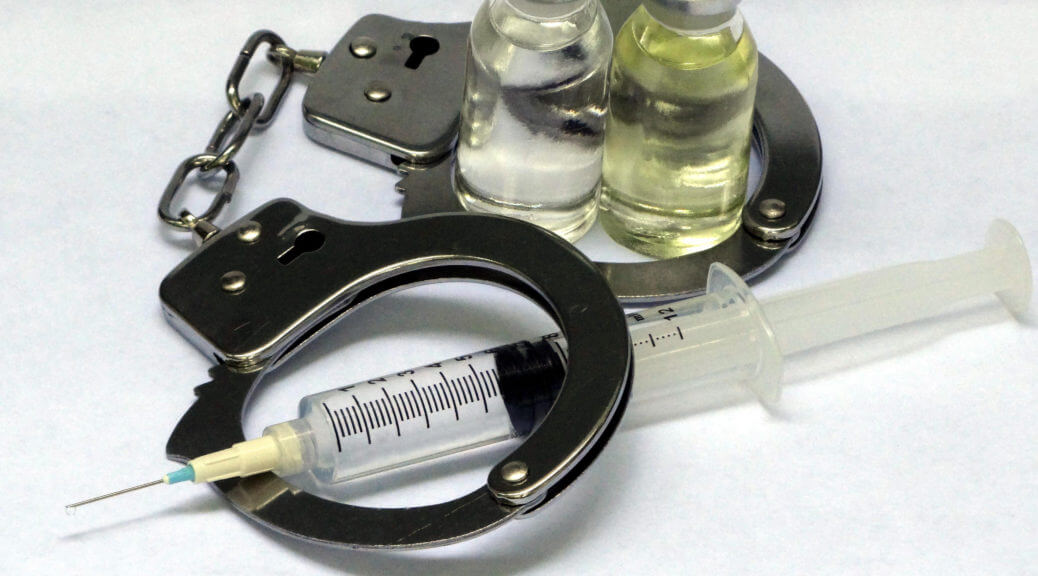
Mark Thornton is a Senior Fellow at the Mises Institute. He is the author of many books, including The Economics of Prohibition (which you can access for free here), which is also the topic of this episode.
1. Does drug prohibition help stop poverty and homelessness?
The conventional wisdom on drugs is simple: you see drugs and drug abuse mixed with poverty and homelessness and it makes intuitive sense that drugs play a role in causing poverty. It seems to follow that by criminalizing drugs, you can take them out of the equation and help solve the other problems.
Mark disputes this conventional wisdom. First, the causation doesn’t necessarily go from drugs to poverty. Poverty can cause people to abuse drugs and mental illness can cause both self-medication and poverty. Second, if you legalize drugs, they won’t be sold on the street. Instead, they’ll be sold by legitimate businesses with a particular interest in maintaining their reputation and not harming their customers. Prohibition is what creates the black market, which in turn generates violence, crime, and more potent and dangerous drugs, all of which exacerbate poverty. You can’t clean up the social problems related to drugs by criminalizing them when criminalizing them is what caused many of those problems.
2. The Suburban Heroin Epidemic
Mark recently authored an article called The Legalization Cure for the Heroin Epidemic. In the article, he calls attention to the rising number of overdose deaths in the United States:
The number of drug overdoses in the US is approaching 50,000 per year. Of that number nearly 20,000 are attributed to legal pain killers, such as Oxycontin. More than 10,000 die of heroin overdoses. I believe these figures vastly underestimate the number of deaths that are related to prescription drug use.
The face of drug abuse has changed in recent decades. Rather than the homeless junkie we might picture when we think of addiction, the new addicts are middle-class people who have been over-prescribed legal opiates like such as Oxycontin and Vicodin. Doctors have been routinely prescribing these addictive opiates and many people turn to the black market rather than going cold turkey when their prescriptions expire.
The problem is that Oxycontin and Vicodin are very expensive on the black market, so many of these unintentional addicts turn to heroin as a cheaper substitute. The problem with buying black market heroin is that you don’t know what you’re getting. Different addicts need different doses, and you don’t know what kind of dose you’re getting and what it’s been cut with. All it takes is one particularly strong dose to cause an accidental overdose.
3. American Foreign Policy and the Supply of Opiates
Afghanistan is the largest grower of illicit opium, and the supply has greatly increased since its invasion in 2001. The invasion destroyed the country’s legitimate economy and many farmers turned to opium production. Being a huge and basically lawless country with a perfect climate for growing poppies, the global supply of opium exploded.
4. Political Lies to Support Drug Prohibition
Mark discusses the political circumstances around the prohibition of marijuana in the United States.
Marijuana prohibition went national with the passage of the Marijuana Tax Act of 1937. It too quickly changed from a measure to tax and regulate into an outright prohibition. Even hemp, the non-intoxicating form of cannabis was banned! When propaganda claiming that marijuana was deadly and caused insanity, violence, and criminal behavior was debunked (aka Reefer Madness), the “gateway theory” was born to fill the void. The gateway theory posits that while marijuana might not be addictive or dangerous, it would lead the user to try the hard drugs, such as heroin. This theory became the prevailing view in the second half of the twentieth century.
Commissioner Harry J. Anslinger made up this gateway theory on the spot when arguing for the prohibition of marijuana. Unfortunately, the argument stuck.
Recently, a quote by John Ehrlichman, Richard Nixon’s domestic policy advisor (and Watergate co-conspirator) has resurfaced on the internet:
“The Nixon campaign in 1968, and the Nixon White House after that, had two enemies: the antiwar left and black people. You understand what I’m saying? We knew we couldn’t make it illegal to be either against the war or black, but by getting the public to associate the hippies with marijuana and blacks with heroin, and then criminalizing both heavily, we could disrupt those communities. We could arrest their leaders, raid their homes, break up their meetings, and vilify them night after night on the evening news. Did we know we were lying about the drugs? Of course we did.”
This quote shows how drug prohibition has long be complicit with the politics of bigotry.
5. Progress Against the War on Drugs
Despite the sordid history of drug prohibition in the twentieth century, we’ve made slow progress towards a sane drug policy. Marijuana’s many health benefits cannot be denied, and legislators are starting to take notice. Medical marijuana has been legalized in many places, and some places have even legalized it for recreational use.
Meanwhile, some jurisdictions have switched from treating drugs as a criminal issue to treating them as a medical issue. Portugal legalized all drugs in 2001. Some police chiefs have even unilaterally changed course in how they deal with addicts, offering help rather than incarceration.
We can only hope that complete legalization is just around the corner.
Subscribe to Economics Detective Radio on iTunes or Stitcher.
The post Drugs, Prohibition, and the Suburban Overdose Crisis with Mark Thornton appeared first on The Economics Detective.

